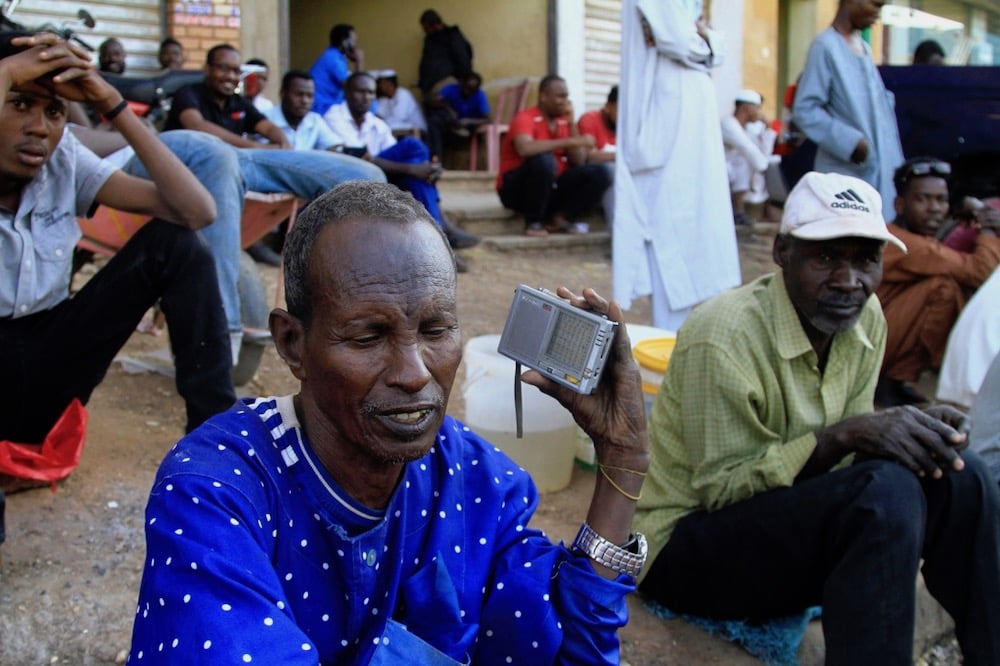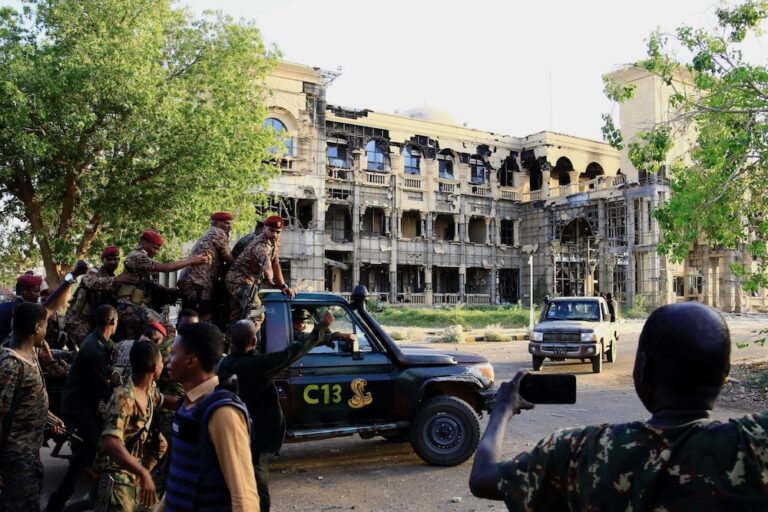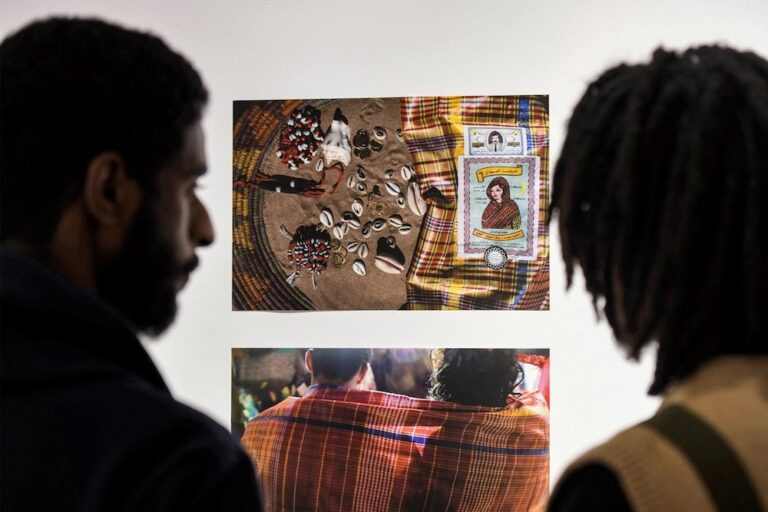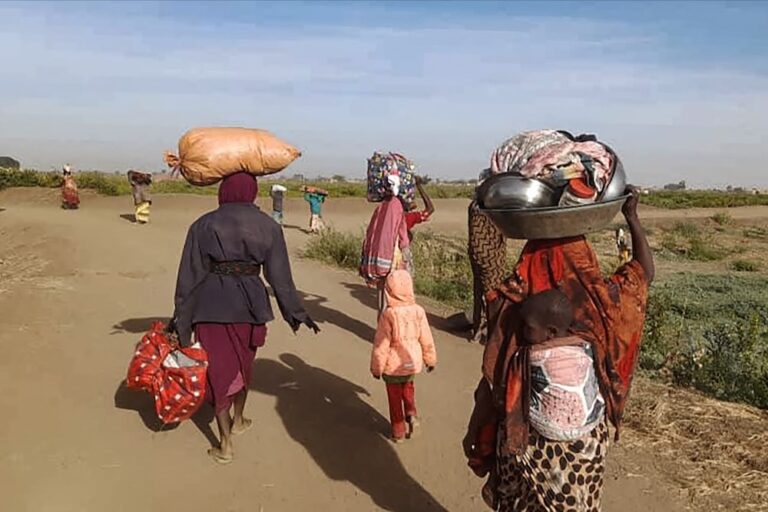Closure of BBC Arabic radio threatens access to credible information and risks amplifying misinformation.
This statement was originally published on smex.org on 17 February 2023.
After 85 years of continuous broadcasting, BBC Arabic radio in Sudan finally went off the air on January 27, 2023. Millions of Sudanese citizens, especially those living in rural areas, and people in the Arab World more generally, will no longer hear the famed greeting: “This is London Calling.”
Shutting the BBC Arabic radio station deprives millions of one of the most important sources of independent information. This is particularly problematic since internet use in Sudan remains very limited compared to its population.
Digital Gap Filled by the Radio
In 2015, the Sudanese Parliament issued the Access to Information Act, and despite its many flaws, it has not been adequately enforced. Some argue that it was purposefully under-enforced because authorities want to restrict people’s access to information. In 2018, the Sudanese government established the Universal Service Fund under the Law on the Telecommunications and Post Regulatory Authority (TPRA) to support service providers in addressing the digital gap and to “improve and facilitate access to modern technologies.”
However, in 2022, the TPRA announced that the project was facing some obstacles due to delays in receiving equipment and devices, the absence of a policy that facilitates the operation of telecom towers among service providers, as well as low service quality and interruptions in the regions covered by the Universal Service Fund.
According to 2022 figures, the internet penetration rate stood at 30.9%, a meager rate compared to the country’s population of more than 48 million. Nevertheless, citizens still sought information on the internet since they considered it a flexible source of knowledge. However, due to internet accessibility issues faced by many, the radio remained a primary source of information in rural areas and poor neighborhoods.
The radio gained more prominence in Sudan after 2010 when the Sudanese authorities suspended BBC Arabic for “breaches committed by the service.” Authorities only lifted the ban in 2019, when President Omar Bashir was ousted. After its return in 2019, BBC broadcasts were limited to the capital city, Khartoum. While this coverage was undoubtedly narrow, it partially filled the digital gap in Khartoum State, which has more than 15 million inhabitants, in a country where the poverty rate reaches 65%.
Radio in Rural Sudan
Sudan’s radio service was launched in 1940 during World War II, and gradually spread until the broadcasts of the national radio station covered many regions outside the capital and large urban centers. It was the first time Sudanese citizens had access to information in a non-print format. The number of radio listeners and users increased, mainly because many people worked in farming and agriculture and could listen to the radio during their working hours.
However, the advent of modern technologies, including the internet, caused the government to stop developing and maintaining radio services. Most rural areas in Darfur, the largest administrative region in Sudan, have not had access to national radio stations for ten years, according to a statement by the former Director of the Radio and Television Authority in Northern Darfur State Mohammad Hussein Adam.
As a result, poor broadcasting services in some Sudanese rural areas and the government’s failure to develop telecom services have caused residents of the countryside to be isolated and unaware of the events unfolding around them.
According to Sudanese activist Yehya Siddiq, citizens in rural Darfur face two main problems in accessing information: power outages and the lack of modern telecom services. BBC Arabic was a primary source of information before it went off the air, now however, AM Radio Dabanga has become the go-to station for many, especially since it covers civil movements and affairs.
Misleading Information
Weak telecom service coverage is an impediment to people’s access to information and to alternative narratives contrasting the government’s misleading information, as was often the case during the coup. It is no secret that with the closure of BBC Arabic, misleading information and propaganda in Sudan will resurge, especially on local stations.
This was apparent in the tendency of local media outlets to refer to the October 2021 coup as a “corrective measure,” based on the authorities’ instructions. UNESCO media expert Abdul Qadir Mohamad told SMEX that “BBC Arabic is trusted by many Sudanese people. In the past, if a news story was said to be from the ‘London station,’ it was automatically deemed credible.”
According to Mohamad, BBC Arabic had a significant impact on Sudanese listeners, particularly in rural areas, for several reasons. First, it was not subject to the censorship of any authority, unlike local radio stations, which operate under government supervision and are therefore not independent. Second, the lack of infrastructure, particularly internet access, made it difficult to follow the news. Third, illiteracy prevented people from using the internet or reading newspapers.
However, Sudanese journalist Durra Gambo has a different opinion, as she believes that “the media is facing challenges related to agenda-setting, particularly in Arabic-speaking countries. This was clear in the coverage of the BBC prior to the October 2021 coup.” Gambo explained that “the BBC’s absence for nine years undermined its influence on Sudanese listeners, particularly the younger generations, which is why the decision to shut it down did not have a significant impact on the Sudanese youth generally.”
The difficulty – or, in many cases, the impossibility – of accessing the internet undermines the right of Sudanese citizens to access information and exacerbates the spread of misinformation, particularly in poor regions and among communities that rely on the radio as a main source of information – but for how long?



